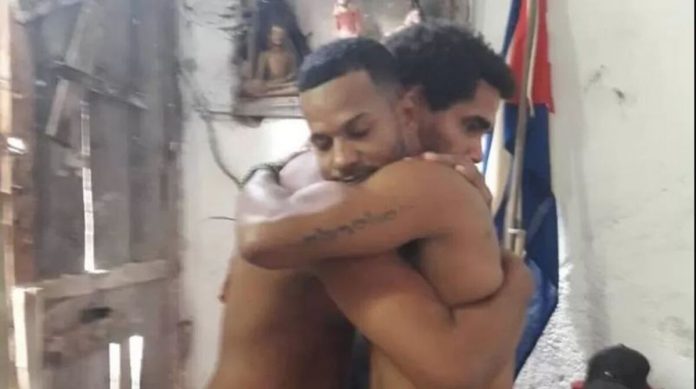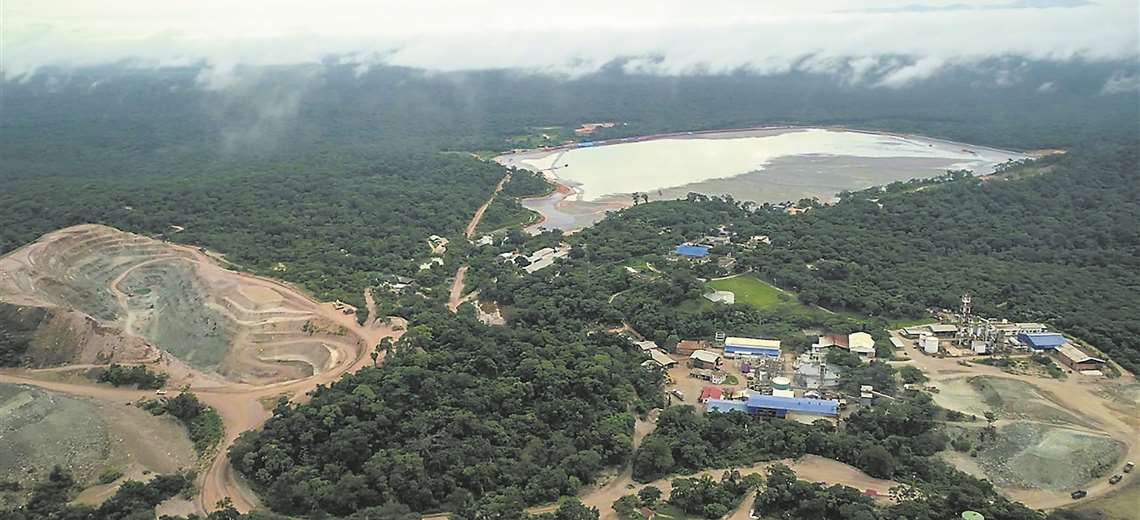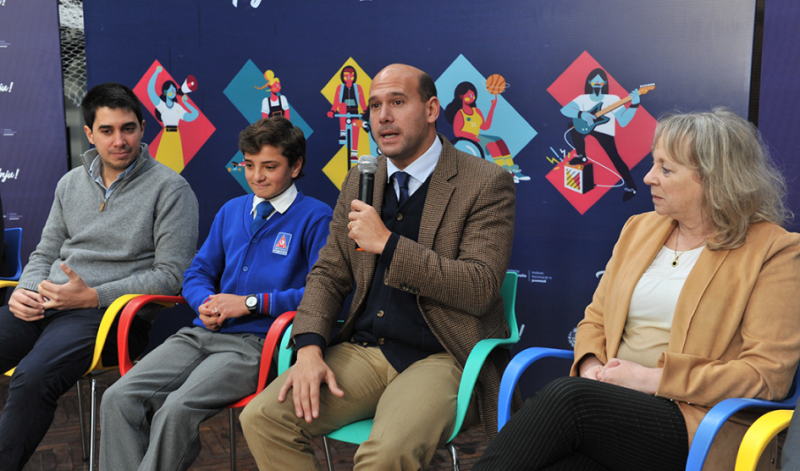Two of Cuba’s main opposition leaders meet again for the first time after months separated by prison: they share a trial in which they face sentences of between seven and 10 years.
The artists and activists Luis Manuel Otero Alcántara and Maikel Castillo, “El Osorbo”, members of the San Isidro Movement (MSI), a group of young opponents who have stood up to the government of Havana, were brought before the courts on Monday after spending 10 months and one year – respectively – in prison.
“The trial is today and tomorrow at the Court of Marianao (in the west of the capital). I only know that all that area was militarized,” Anamely Ramos, a member of the opposition MSI, tells BBC Mundo.
Otero Alcántara, for whom the Prosecutor’s Office is asking for 7 years in prison, and Castillo, for whom it is asking for 10, are accused, among others, of “attack”, “disrespect” and “public disorder”, charges that opposition groups describe as political persecution .
“In addition, Luis Manuel has the crime of ‘outrage against national symbols’ for having made works of art with the Cuban flag and Maikel also has the crime of ‘defamation of State authorities and institutions’ for some posts he had made on Facebook against some leaders and the police”, explains Ramos.
Independent media reported on Monday that the areas near the trial site were taken over by agents and that international news agencies and European diplomats who came there were denied access to the court.
“We simply want to enter to observe the trial and so far we have not received permission,” said a German diplomat quoted by EFE.
Several activists denounced this Monday that their houses had been besieged by the police to prevent them from reaching the trial and some also reported that their internet connection had been cut off.
The Cuban authorities have not commented publicly on this trial, but they have previously described Otero Alcántara and Castillo as “mercenaries in the service of the United States.” and lend themselves to «farces and media shows».
Castillo was arrested last May and Otero, two months later, when he left his house to join the protests that shook the country on July 11.
Since then, they have been in preventive detention, despite the fact that the investigation phase of the Prosecutor’s Office in Cuba usually lasts 90 days. They have been systematically denied legal recourse for their release.
Amnesty International considers Otero a “prisoner of conscience” and the United Nations Working Group on Arbitrary Detention described Castillo’s detention as “illegal.”
dissenting voices
Both artists (young, black, from poor neighborhoods and very humble families) have become two of the most charismatic and followed voices of the Cuban opposition.
They became known internationally when they started a hunger strike in November 2020 against the arrest of one of the MSI members.
The police forcibly evicted the place where they were holding the strike, which led to a demonstration by artists in front of the Ministry of Culture in Havana, a country where events of this type are unusual and penalized.
In April of the following year, they staged another unprecedented protest when a group of neighbors prevented the police from arresting Castillo and gathered in front of Otero’s house to shout slogans against the Cuban president and sing “Patria y Vida.”
Castillo was one of the artists who starred in the Cuban-filmed section of that song, which won two Grammys and has become an opposition anthem on the island.
“It is because of that protest that they are being brought to trial now and that is why they have the same file,” explains Ramos.
The musician was arrested in May and that same month, the Cuban authorities kept Otero for almost a month in a hospital, where he was taken after starting another hunger strike.
Last week, Otero communicated for the first time with his followers from prison through an audio in which he assured that the Cuban authorities had proposed leaving the country as the only alternative for his release.
“The regime has given me exile outside of Cuba as the only way out of prison, otherwise I will spend seven years in prison,” he said.
Castillo, whose relatives say he is ill, reported last week that the authorities had changed his lawyer just three days before the trial.
In the last year, the main opposition voices in Cuba have gone into exile or gone to jail, which has dismantled the opposition movement that gained momentum after the July protests.
After these demonstrations, the largest in Cuba in the last 60 years, more than 1,000 people were arrested and hundreds have been sentenced to up to 30 years, although some have been released in recent weeks.
Otero Alcántara assures that he has refused to leave the country, for which activists fear that the sentences after the trial will be severe.
“We don’t have much hope that the result (of the trial) will be favorable for them because we know that in Cuba the judicial system is totally at the mercy of power,” says Ramos.











